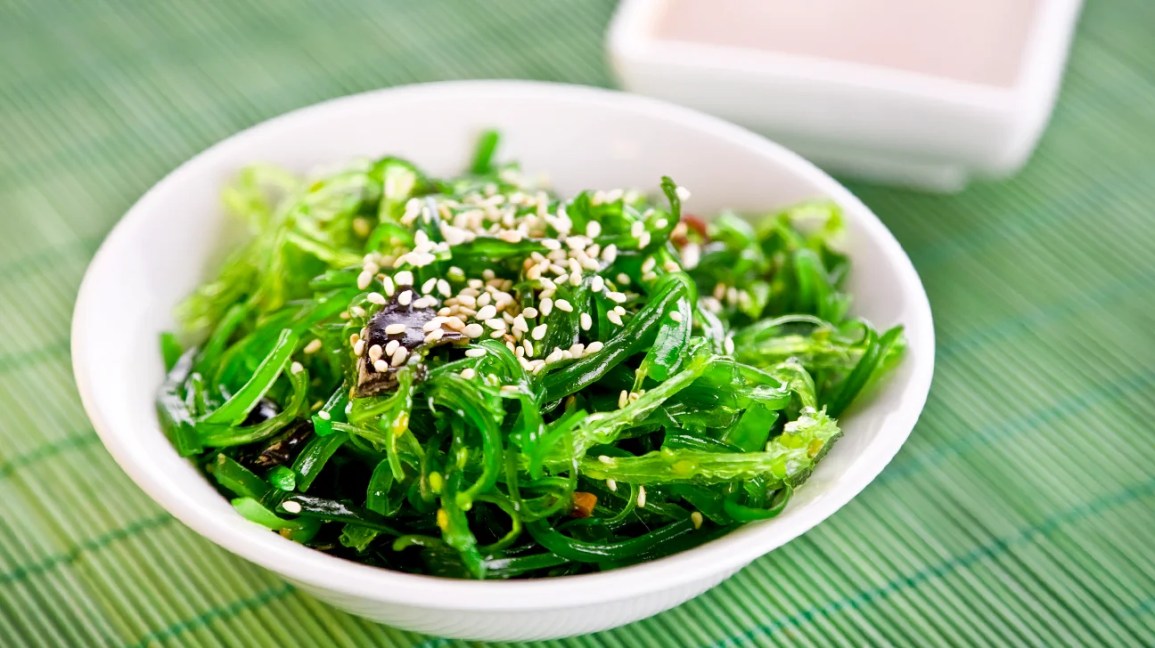Kelp (Laminaria) is a type of brown seaweed that usually grows in big undersea forests. While seaweed can grow in almost any kind of saltwater or freshwater, kelp is found only in saltwater, usually along nutrient-rich, cold, rocky shorelines. There are about 30 various ranges of kelp. Kelp supplies nutrition for a large range of sea life. Individuals also consume this leafy seaweed, since of its high dietary worth.
Kelp– along with other types of edible seaweed– has actually been a staple in the Japanese diet plan for hundreds of years. Now this food has actually become typical in other parts of the world, due in part to the popularity of kelp noodles.
Kelp Nutrition Facts
The following nutrition details is provided by the USDA for 1 cup (15g) of dried seaweed.1.
Calories: 44.7.
Fat: 0.6 g.
Sodium: 86.2 mg.
Carbohydrates: 7.9 g.
Fiber: 0.8 g.
Sugars: 0.5 g.
Protein: 4.8 g.
Carbs.
The carbohydrate content of dried kelp is low, with under 8 grams in a complete cup. Of this, under 1 gram originates from sugar and fiber.
Fats.
There is very little fat naturally discovered in kelp although it might be added during cooking.
Protein.
Dried kelp has nearly 5 grams of protein per cup.
Vitamins and Minerals.
Kelp consists of many essential minerals and vitamins, consisting of vitamins K, A, C, and E in addition to folate, vitamin B12, and vitamin B6. It also supplies small amounts of thiamin, riboflavin, niacin, and pantothenic acid.
Iodine is a mineral that’s present in high quantities in kelp. Other minerals consist of calcium, magnesium, iron, salt, and phosphorus.
Health Benefits.
Kelp is high in nutritional worth because it’s really low in calories however loaded with fiber, vitamins, and minerals, which offer various health benefits:.
Vitamin C: An anti-oxidant that may help avoid health problem or illness.
Calcium: Aids in bone health.
Iron: Important for healthy blood and disease resistance.
Magnesium: Essential for numerous biochemical responses in your body.
Iodine: Necessary for the production of thyroid hormones and to maintain a healthy metabolic process.
Promotes Weight Loss.
Some research study has recommended that the kind of fiber found in seaweed, including kelp, might aid with satiety and feeling of fullness, which might assist individuals consume less general calories. Seaweed itself is low in calories and fat, and one of the anti-oxidants found in seafood, called fucoxanthin, might likewise help with weight-loss.2.
Decreases Cancer Risk.
While more research is required, 3 substances discovered in seaweed have revealed some initial guarantee in fighting cancer:.
Fucoidan, a kind of fiber found in seaweed.
Polyunsaturated fatty acids.
Polyphenols (anti-oxidants) 2.
Lowers High Blood Pressure.
Some of those very same compounds, such as fucoidan and fucoxanthin, might also help individuals who have high blood pressure. Folate, too, has actually been shown to help preserve healthy high blood pressure, and seaweed can be an excellent source of this B vitamin.3.
Allergic reactions.
Allergy to kelp or other seaweed is unusual, but possible.4 If you experience signs of food allergy after eating kelp (such as swelling or rash, specifically around the mouth), consult a physician.

Adverse Effects.
Kelp is most likely safe when consumed in the amounts generally discovered in food. The high quantity of iodine and potentially heavy metals in kelp can be detrimental to your health if you consume too much, especially in the form of supplements.2.
Your advised daily intake of iodine depends upon your age and sex. A lot of grownups require 150 micrograms daily. The upper limit (the most that ought to be consumed in a day) is 1,100 micrograms.
Because the iodine content in kelp and kelp items differs, it can be uncertain just how much iodine you will take in when you eat it. Taking in too much iodine can trigger severe unfavorable health results, such as goiter, thyroid gland swelling, and, in serious cases, thyroid cancer. Exposure to heavy metals can likewise damage thyroid function.5.
For these factors, health experts recommend that pregnant or breastfeeding women and those with kidney or thyroid conditions, such as hyperthyroidism, prevent consuming kelp.2.
Ranges.
There are different ranges of kelp, one of which is kombu. Kombu is the Japanese word for kelp, normally the Saccharina japonica species.
Raw and dried kelp and kelp noodles are found in many specialized markets. Kelp noodles can likewise be found in some supermarket and supermarkets in the Asian food area. You can also purchase kelp and kelp noodles online.
Note that the nutrition of kelp noodles will differ based on the product that you buy and the recipe you utilize. Brands with simply kelp, water, and sodium alginate (a natural hydration representative that is extracted from brown seaweed) will be low in calories, carbs, and fat while still using a few of the nutritional advantages of plain kelp.
Storage and Food Safety.
Dried kelp and kelp noodles are normally packaged so that you can keep them in your cupboard for about 6 months, as long as they are unopened. You can keep fresh or rehydrated kelp in the refrigerator for a couple of days.
How to Prepare.
Raw kelp can be utilized in stir-fry meals and soups, contributed to salads, or included in shakes. Dried kelp can be contributed to the pot when cooking dried beans to boost flavor and make them less gas-causing. It can also be used to add taste to soups and broths.
Kelp noodles can be taken in cold or heated, however you ought to rinse the noodles before taking in. Attempt including them to green salads, using them as a pasta option, or tossing with sauteed veggies and a protein.



